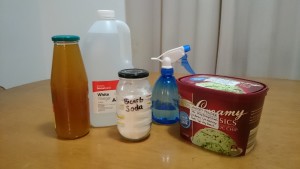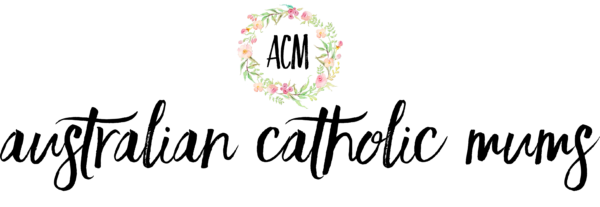As I mentioned in my tomato sauce recipe post, we’ve been getting wary about synthetic chemicals in our food. That wariness also extends to the use of chemicals throughout the rest of our home. With a little bit of research, it’s not hard to find simple, natural and frugal alternatives for our cleaning and personal hygiene needs, many of which used to be commonplace in our parents’ or grandparents’ days.
So we’ve started switching.
To make it affordable, where one or two simple products are not quite enough, we’ve usually opted to make things ourselves rather than buying “eco” products. Starting out, this was overwhelming, seeing just how many household products we wanted to start making! So we chose some to start with and are gradually phasing the chemicals out of our house, which we figure is better than doing nothing.
Here are some of the natural cleaning alternatives we have swapped to so far:

Citrus vinegar
This stuff is so easy to make. Simply fill a jar or bottle with citrus peels, cover with white vinegar and put aside for at least a month. If you’re only using one or two lemons at a time, just put the peels in, cover with vinegar, and add more peels and vinegar as you get them. The citrus oils will infuse with the vinegar over time. When you want to use it, strain the liquid and put it in a spray bottle for an all natural, grease-cutting, multipurpose cleaner. We use it to clean kitchen benches, the bathroom basin and the surfaces of the toilet. We also use it to clean the shower and toilet bowl, sprinkling bicarb once we’ve sprayed for some added oomph! (Just listen to it sizzle!)
50:50 Water/Vinegar
This works much like the citrus vinegar but without the citrus grease cutting factor. However it works a treat as a glass cleaner, and won’t leave a coloured residue on the surrounding wall areas like the citrus vinegar does in this context. It can also be used as a general cleaning spray and boosted by sprinkling bicarb on after spraying. We do this for cleaning the oven and greasy roasting trays which works great to lift all the grease and stuck on stuff.
Bi Carb
There are plenty of uses for bicarbonate soda in cleaning. We mainly combine it with vinegar or lemon juice, as described above. One thing I haven’t tried yet, is that it can apparently be used for spills on things like carpet or couches to clean and deodorize. Just sprinkle on the affected area and leave for a while before vacuuming it out.
1 cup vinegar in mopping water
Gets floors clean, no chemicals required.
Lemon
The main time I use lemon in cleaning is by cutting one in half, squeezing some of the juice into a bowl, adding water and microwaving for a minute or two to fill the microwave with steam. This does half the work of cleaning your microwave! Then all you need to do is wipe the inside down. Jill also gives heaps for ideas for using lemons for cleaning in this post.
Air freshener
We took Kelly Casanova’s idea and started making our own air freshener spray for the toilet using filtered water and lavender essential oil in a spray bottle. And we are not looking back! The smell is beautiful and fresh, much nicer than any store bought spray can we’ve bought. And we think it is also much more effective at covering up smells than store bought ones. So easy. Winner!
Laundry powder
We now make our own laundry powder, which is actually really simple to do. Ours has three ingredients and I don’t think it will ever go off, so you could make a bucket sized batch if you wanted and it will last you for ages. Because most of our laundry loads contain a few modern cloth nappies, it took me a while of internet research to decide on a formula I thought would be safe for the MCNs. Eventually I combined a few recipes into one: 1 part washing soda, 1 part borax and ½ part pure sodium percarbonate (oxygen bleach). I just put the powders in a tub, stir to combine, and use 1 tablespoon per wash, or 2 for a large or particularly dirty load. Our clothes (and nappies) keep coming out clean and fresh so it seems to work great! If we didn’t have cloth nappies in the mix, I’d consider swapping the sodium percarbonate for grated bar soap (one with all natural ingredients), which can apparently cut grease a little better. However it can cause water-repelling residue buildups in cloth nappies so for now, I’m sticking to what we’re doing. While these ingredients are natural and safe once rinsed out of the clothes, they are not safe to consume or inhale. I’m confident that it is safe to use in the washing machine, but take care when mixing and keep it where the kids won’t get to it.
What other natural cleaning alternatives do you use and love?
Originally posted 2015-10-12 12:00:51.
